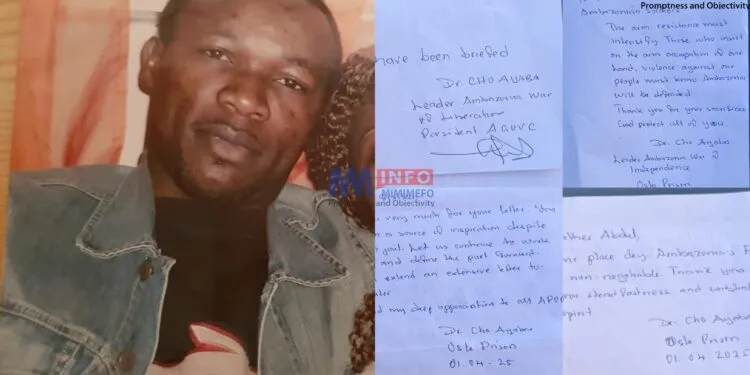From behind the walls of an Oslo prison, Ayaba Cho Lucas, the self-proclaimed leader of the Ambazonian war for independence, has issued a series of handwritten messages reaffirming his commitment to armed resistance against the Cameroonian government. His letters, addressed to key figures in the separatist movement, signal a continued push for military confrontation. This is in contrast to the non-violent approach long championed by his rival, Sisiku Ayuk Tabe.
In a letter to his “brother” Abdul, Ayaba Cho said that “Ambazonia’s freedom is non-negotiable,” commending his comrade’s steadfastness. It is not clear which Abdul he is referring to. However, the Ambazonia Governing Council Press Secretary clarified in an X post that it is Abdul Karim Ali.
Another letter is addressed to Sisiku Ayuk Tabe, the detained president of Ambazonia. He struck a more conciliatory tone, acknowledging Sisiku as a “source of inspiration despite being in jail” and expressing a desire to “work together and define the path forward.” However, given their long-standing rivalry and ideological differences, Ayaba’s message is likely more strategic than reconciliatory.
In his most striking letter, addressed to “all Ambazonian soldiers,” Ayaba Cho issued a direct call to arms:
“The armed resistance must intensify. Those who insist on the armed occupation of our land, violence against our people must know Ambazonia will be defended.”
In one, he simply wrote, “I have been briefed.” This was a signature statement he often used to indicate when his fighters, the Ambazonia Defence Forces (ADF), had carried out an action. However, it is not clear if this recent briefing has got to do with the ongoing confiscation of ID cards and imposition of misery on the civilian population.
This latest message underscores his firm belief in military action as the only viable path to achieving Ambazonian independence. His rhetoric contrasts sharply with the approach taken by Sisiku, who has historically advocated for diplomatic engagement and international mediation.
A History of Rivalry and Power Struggles
The divide between Ayaba Cho and Sisiku Ayuk Tabe has long been a defining feature of the Ambazonian separatist movement. In 2017, Sisiku declared independence and was ‘voted’ “President” of Ambazonia. Meanwhile, Ayaba Cho rejected the leadership structure and insisted on a decentralised, military-led struggle. His dramatic visit to Dadi in Cameroon’s South West region, where he examined fighters, directly challenged Sisiku’s authority.
While Sisiku and several members of his government were arrested in Nigeria and extradited to Cameroon in 2018, Ayaba Cho remained abroad, establishing himself as the de facto leader of the armed wing of the separatist movement. His messages from Oslo now seek to cement that status, despite his own incarceration.
Curiously, unlike the widespread international advocacy that surrounded Sisiku’s arrest and trial in Cameroon, Ayaba Cho’s detention in Oslo has sparked little visible outcry. This muted response may reflect lingering divisions within the separatist movement, with some factions reluctant to rally behind his militant ideology.
Dwindling Support on the Ground
Despite Ayaba Cho’s rallying cry, the separatist movement is facing growing disillusionment among the very people it claims to fight for. Support for the armed struggle has waned significantly due to repeated attacks on civilians. These include forced taxi colour changes, market and school closures, kidnappings, and most recently, the confiscation of ID cards from residents in Anglophone regions. These actions, initially justified as enforcement of “Ambazonian laws,” have instead fostered resentment. They have made life increasingly difficult for ordinary citizens caught in the conflict. Many now view the separatists as an equal threat to their safety. This, alongside the atrocities of government forces, further weakens the legitimacy of the struggle.
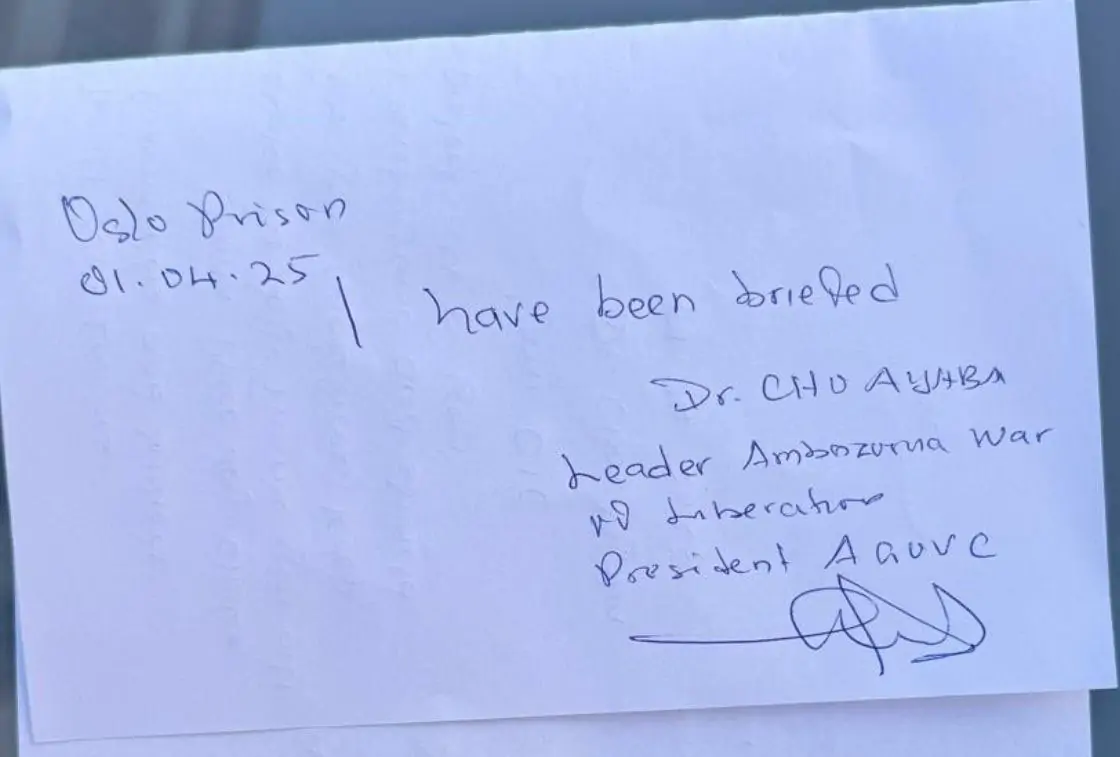
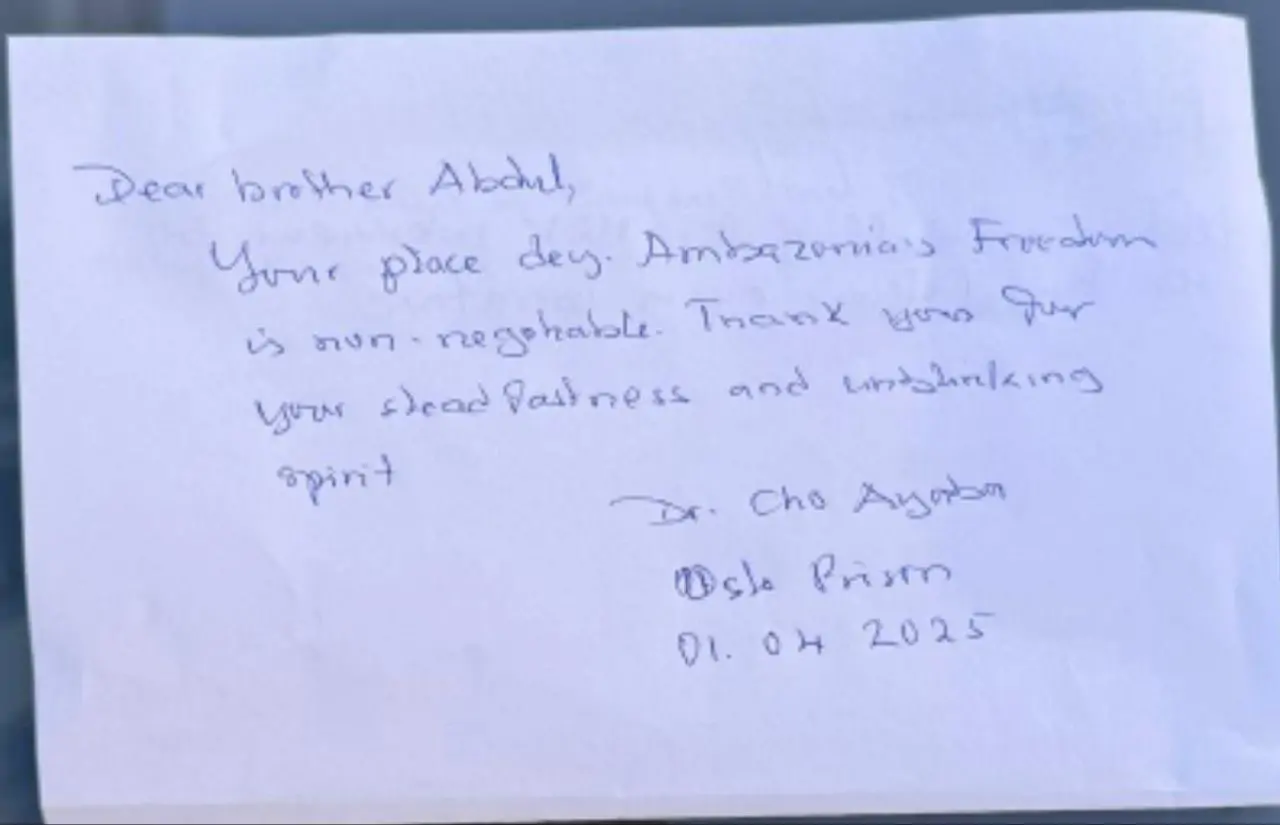
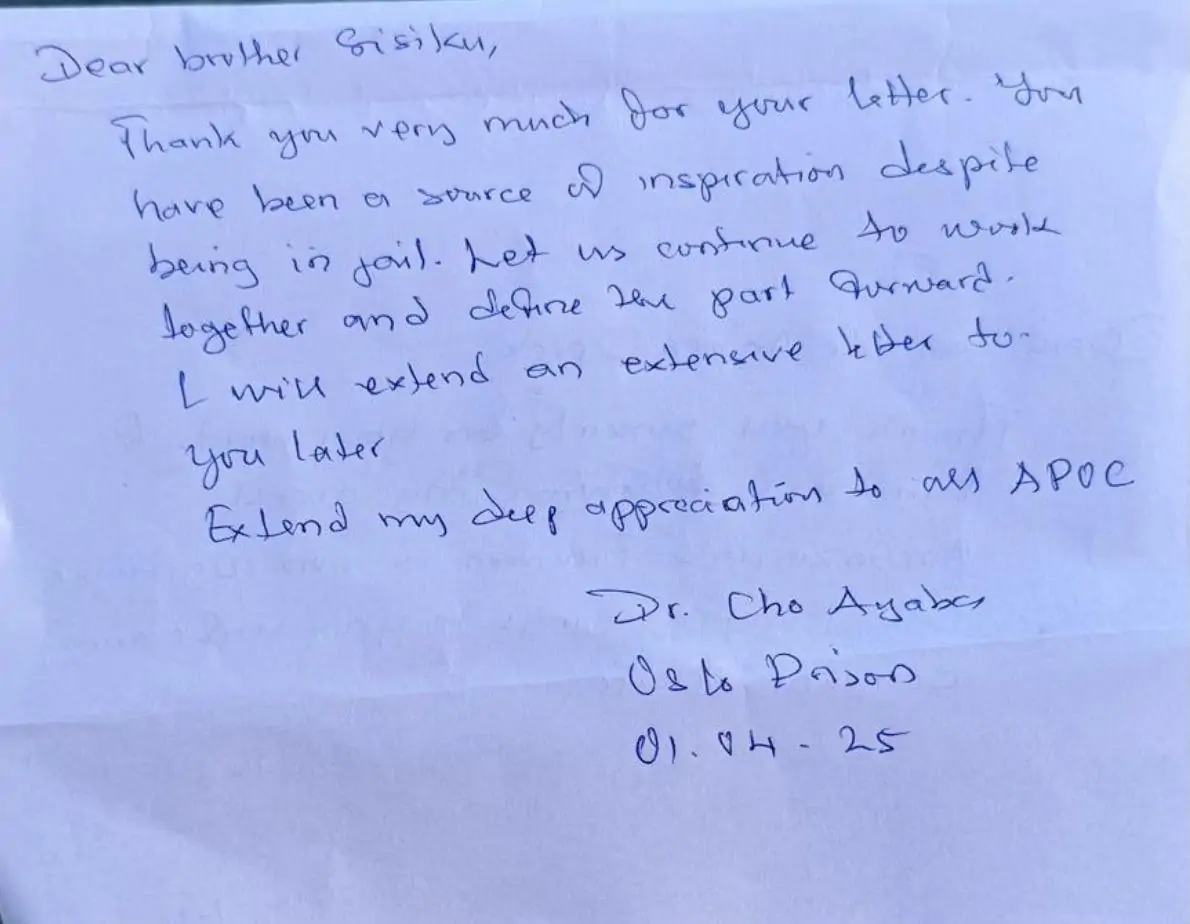
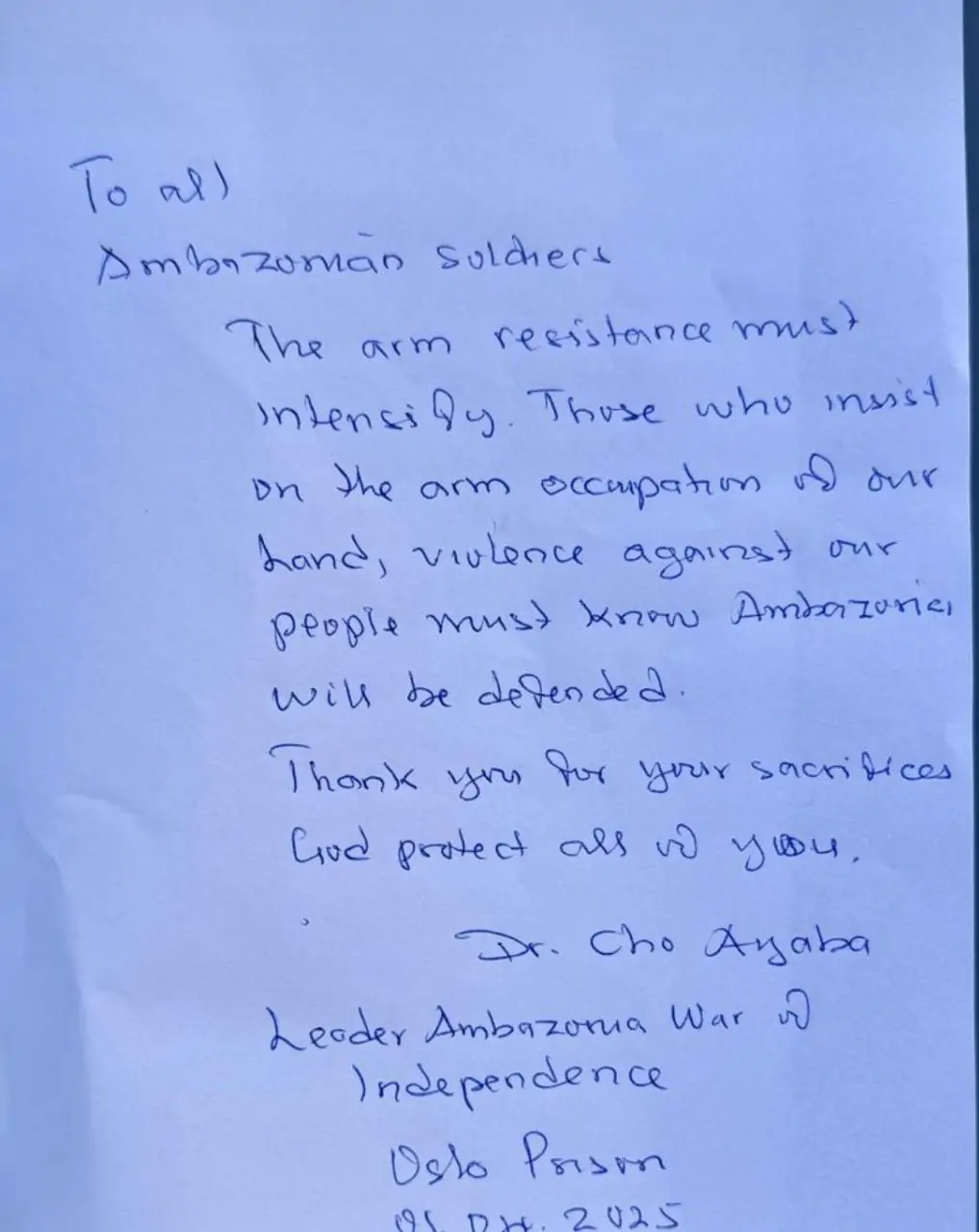
What Lies Ahead?
Ayaba Cho’s prison letters suggest that, despite his confinement, he remains resolute in his vision of an armed struggle. His calls for increased resistance will gain traction among Ambazonian fighters on the ground are highly unlikely. Meanwhile, the lack of widespread advocacy for his release may indicate that even within separatist ranks, his leadership is far from uncontested.
As the conflict between Cameroon’s government and Ambazonian separatists drags on, the ideological battle between Ayaba Cho and Sisiku Ayuk Tabe continues to shape the movement’s future. With one leader imprisoned in Cameroon and another in Norway, the fight for Ambazonia remains as fractured as ever.


